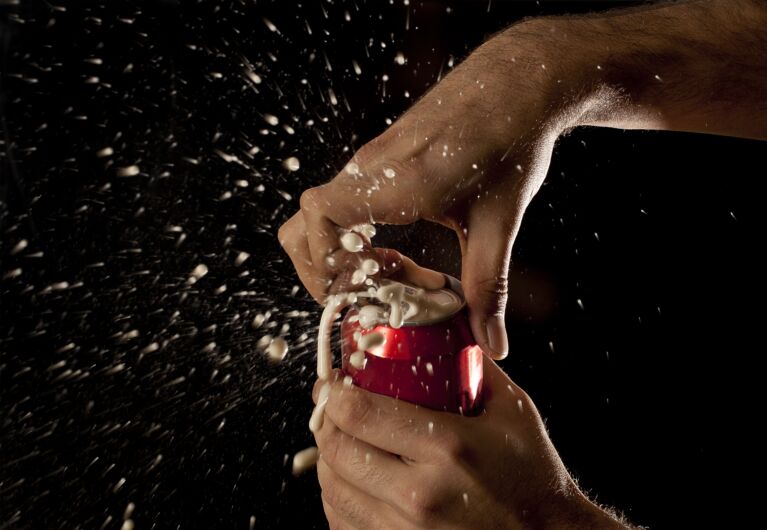Test equipment for canned beverages

Beverage cans on the rise

The advance of canned beverages (soft drinks, sports drinks, ...) and more specifically (craft) beers is enormous and cannot be denied. In addition, the plastic outer packaging of that tin packaging is also on the slope. There (more environmentally friendly) alternatives, usually in cardboard, are also on the rise.
Rycobel offers you assistance at many points in the production process for the production and testing of drinks in a can. We can also help you with the necessary equipment for testing your alternative packaging.
Below is a small overview of our solutions. From production and quality control to simulating the transport and its impact on your product.
The importance of a dry can

After filling or cleaning the cans, it is imperative that the cans are as clean and dry as possible. This is to avoid (sticky) residues. Leftovers that can cause problems in the further production process, for example with coding, labeling or when applying the outer packaging. It is essential that the cans are dry when applying the package foil*, 'can sleeves' and the new cardboard trays and holders. This to avoid production failures.
To limit your production costs and waste, the CanDryer blow-off and drying system offers you the solution for drying and cleaning your cans.
* Please note: Our experience shows that static charges build up when unwrapping the packaging film. Proper neutralization, discharge, of those charges is essential for the correct application of the film. Contact us for questions on this topic.
Quality in a can

We provide you the necessary testing equipment to test both the content and the packaging for impeccable quality.
Just think of checking the pasteurization, leak detection or determining the tensile strength of your outer packaging. In addition, you can use our Schoulder Cart tester to test the behavior of your can in a vending machine. You can contact Rycobel for this and so much more.
Contact our experts to explain your applications. Together we will find the most suitable solution for your problem or test.
And what about transportation?

In addition to producing and checking your canned drinks, transport is of course another essential phase.
It seems obvious to us that your cans arrive at the customer intact and without leakage. Naturally, the effect of transport and the strength of the can must also be tested extensively. Is your tin sufficiently resistant to vibrations and shocks? What if one of them falls?